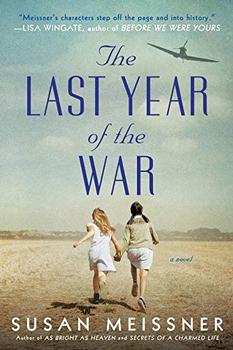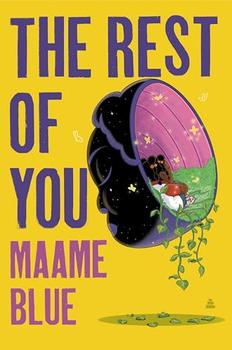Page 1 of 6
There are currently 37 member reviews
for The Last Year of the War
-
Barbara G. (Dallas, GA)
The Last Year of the War
This is perhaps the best Historical Fiction book I have read. It tells the story of two young girls who, because of family nationalities, end up in an internment camp in Texas. It continues to follow their lives until they meet up decades later.
The writing in this selection is powerful and brings to life the characters and settings making the reader truly feel as if they were in the midst of the story.
It is clear that the author did a lot of research into this time period of the camps that is rarely written about or studied in The United States.
There are strong themes of family, friendship and loyalty throughout the book.
I highly recommend this book to any reader who enjoys a great interesting and informative read.
-
Marcia C. (Jeffersonville, PA)
An Unnoticed Victim of War
Susan Meissner has written a heartfelt story about a German American teenager, whose search for her own identity and values took her through a German/Japanese internment camp In Texas during World War II; deportation to Germany during the last year of the War; a return back to the States after the War; and, finally, her own personal battle with Alzheimer's.
Elise Sontag was a normal 14-year-old girl when her father was arrested for being a German spy. Her family was uprooted from Davenport, Iowa and taken to a U. S. internment camp. After a year of camp restrictions and regulations, and bolstered by her friendship with Mariko Inoue, a Japanese internee in the camp, she begins to feel somewhat normal again. Then her family is forced to leave the US and go live in Germany, where the war is still being brutally waged.
This moving story tells of Elise's search for home, happiness and a sense of identity that keeps her true to herself. This is the story of a woman who stayed the course throughout countless obstacles. Susan Meissner's writing is gripping and emotional. This story is well worth reading and sharing with friends. There is much food for discussion here. It would be a great book club pick, especially in light of the internment camps once again being set up in Texas.
-
Patricia E. (Sugarcreek, OH)
Great Historical Fiction
As a young married woman, main character Elise Dove sums up the theme of "The Last Year of the War" as a quest for home. That quest includes travels in Iowa, Little Tokyo in Los Angeles, California and Texas well as various cities in Germany and Japan. As the world and worldview is shattered by World War II, the friendship between two young teenagers and their families blossoms. The author captures a moment in U. S. history that many Americans are still trying to process and reconcile with our nation's ideals - the internment of legal Japanese and German immigrants in camps across the U. S. In the right hands historical fiction can entertain, educate and evoke strong emotions. Susan Meissner has the right hands. I highly recommend this book. As a young married woman, main character Elise Dove sums up the theme of "The Last Year of the War" as a quest for home. That quest includes travels in Iowa, Little Tokyo in Los Angeles, California and Texas well as various cities in Germany and Japan. As the world and worldview is shattered by World War II, the friendship between two young teenagers and their families blossoms. The author captures a moment in U. S. history that many Americans are still trying to process and reconcile with our nation's ideals - the internment of legal Japanese and German immigrants in camps across the U. S. In the right hands historical fiction can entertain, educate and evoke strong emotions. Susan Meissner has the right hands. I highly recommend this book.
-
Jean Lewandowski
The Last Year of the War
A person chooses to read historical fiction because the reader wants to learn something while being entertained by a strong story line connected by real events in time. The Last Year of the War by Susan Meissner accomplished both of these elements.
Did you know that over eleven thousand legal German immigrants were interned during World War II in detention facilities within the United States? Many of them were also pressured to be repatriated to war torn Germany as a part of an “Exchange Process” during the last year of the war in Europe
This story details the life of Elise Sontag and her family. When Elise’s father is arrested by the FBI under Executive Order 9066 as an enemy alien, a peaceful life in Davenport, Iowa, is disrupted. Poverty and uncertainty will follow the family as they are separated from each other, reunited in an internment camp in Texas, and finally repatriated in Germany where allied pilots were still bombing German cities. The story is also about a friendship between Elise and Mariko,a Japanese internee at that same camp in Texas.
Now at the age of 77, Elise has just been diagnosed with Alzheimer’s. She knows her mind is slipping. She wants to reconnect with Mariko who she has not seen or heard from in over 60 years.
The Last Year of the War was a book that I enjoyed. At my age (75) a person can not waste time reading something that is not enjoyable. I also appreciated all the new things I learned while I was reading this book. I cared about the characters and was interested in the story line. I plan on reading other books by Susan Meissner.
-
DeAnn A. (Denver, CO)
Stellar Historical Fiction
I simply loved this book and the characters that Susan Meissner brings to life, by the end of the book they felt like old friends. The historical research is evident but seamlessly woven into a very realistic story. There are broad themes of friendship, love, identity, family loyalty, the damages of war -- all with an important historical backdrop.
We meet Elise Sontag when she is an elderly woman and then learn more about her early life as a typical teenager living in Iowa while WWII rages in Europe. Her German father is arrested and sent to an internment camp and the whole family later follows. Elise befriends Mariko – a teenager in the same boat she’s in – Mariko’s parents are Japanese. The girls become fast friends over the long months in the camp, but circumstances force them apart and they struggle to remain in touch.
I adored the character of Elise Sontag and cheered for her to overcome the huge obstacles placed in the way of her happiness. I highly recommend this story if you enjoy WWII historical fiction.
-
Lillian
There's no place like home...
The Last Year of the War written by Susan Meissner, tells the story about Elise Sontag, a German American born Teenager whose life changes forever when her immigrant family is sent to a Texas internment camp for 18 months during World WAR II.
The story is narrated in first person through the eyes of Elise during her childhood years and switching through her elderly age accompanied by Alzheimer’s disease and which she likes to call “Agnes”. The narrative structure is simple, the dialogues are very realistic, easy to read and yet difficult to forget.
Elise comes to understand her fate when one cold night during the last year of war, her father confesses to her on a dinnerless table, the 5 things he wished he had done differently. For every page you turn you will follow Elise’s painful, yet memorable journey to returning to what she calls home.
I really enjoyed this book and learned a lot from it. It is not the common World War II novel that you usually read. I acknowledge the author has done a good amount of research on the topics of Internment Camps in the US and the repatriation of Japanese and German families to their countries.
A remarkable story of love, hope, promises, friendship and never giving up on who we are. I would highly recommend it to historical fiction fans readers and book clubs.
-
Laura G. (Buffalo, NY)
A Life of Bravery
This book takes us on the life journey of an American born German girl named Elise as her life changes due to Word War II. Her circumstances make her question her identity and where she belongs. The short but powerful friendship between Elise and Mariko, an American born Japanese girl teaches Elise to stay true to herself in spite of how she is perceived by the outside world. There are many frightening moments for the girls throughout this book. Mariko has an amazing quote about bravery that stays with me: “Maybe being brave is different from being unafraid. If you’re unafraid, what is there to be brave about?” I hope you enjoy this book about lifelong bravery as much as I did.




